STUDENT LOANS:
1.56 trillion dollars in 2020, 1 in 5 families with this debt, average is $37,000 with many over 100k. 44.7 million Americans with student loan debt. 92% of student loans are federal.
There are more than 2.8 million students with debts over 100k. 34% of borrowers are between 18 & 29. Average loan payment is $393. 10% of borrowers are unable to purchase cars due to this debt and a large percentage of student loans result in low home ownership.
COLLEGE COSTS:
The average cost of tuition, fees, room and board for 2019-2020 for a 4 year college was $21,950 for one year as an in-state student at a state school and $49,870 for a private college, according to College Board. That adds up to $87,800 for four years at a state school and $199,480 at a private college.
The average annual tuition and fees for a four-year bachelor’s degree in the United States is $8,893 for in-state attendees of public colleges, $22,203 for out-of-state attendees of public colleges, and $30,094 for private nonprofit colleges.
Cost is a major reason for this: Community colleges are much cheaper than four–year institutions. College Board data shows that in the 2020-2021 school year, the average cost of tuition and fees at a public two-year college was $3,770, compared to $10,560 at a public four–year college.
DEBT STATS:
78% of all Americans live paycheck to paycheck. The national debt per person exceeds $85,000.
Average household had $6,194 or more in credit card debt and average interest rate is 20.09%.
Average total credit card limit is over $22,000. Average person has ab out 4 credit cards.
AUTO LOAN DEBT:
TWO THIRDS OF ADULTS IN us HAVE AT LEAST 1 CAR LOAN. AVERAGE CAR LOAN DEBT PER PERSON IN us IS OVER $19,000. Average personal loan is over $16,000. Average car loan interest rate is 16.88%.
PERSONAL SAVINGS STATS:
American savings statistics for 2020 show that nearly 70% of Americans have less than $1,000 stashed away in their bank accounts. That number rose from 58% in 2018. Meanwhile, the number of those with savings between $1,000 and $5,000 stands at roughly 12%. Only 5% of Americans have savings accounts that range between $10,000 and $20,000.
Saving money can help you become financially secure and provide a safety net in case of an emergency. Here are a few reasons why we save: Emergency cushion – This could be any number of things: a new roof for your house, out-of-pocket medical expenses, or sudden loss of income.
TOP CAREERS IN US IN DEMAND:
In fact, the top 10 careers are all in these two fields. Dentist, Nurse, Pharmacist, Physician, Physical Therapist, Dental Hygienist for healthcare and Systems Analyst, Database Admin, and Software Developer and Web Developer for technology.
The best college majors for finding the highest-paying jobs after graduation tend to be in STEM fields: science, technology, engineering, and mathematics.
COST TO RAISE A CHILD IN US:
The cost to raise a child born in from birth to an 18-year-old adult is $245,340 for middle-income families with two parents and up to five children. For low-income families, this cost is $176,550.
Clothing: $14,070 Food: $39,060 Housing: $73,260 Transportation: $34,710
Average Cost of Having a Baby. The average price of having a baby, through vaginal delivery, is between $5,000 – $11,000 in most states, according to data collected by Fair Health. These prices include the total duration of care, the obstetrician’s fee (including prenatal care), the anesthesiologist’s fee and the hospital care fee.
BENEFITS OF BUDGETING:
Gives you control over your money, keeps you focused on money goals, helps you organize spending and savings, helps you decide in advance how your money will work for you, enables you to save for both expected and unexpected expenses, gives you early warning for potential problems, helps you determine amount of debt you can handle.
REASONS DEBT IS BAD FOR YOU:
Encourages you to spend more than you can afford, costs money, causes you to borrow from future income, high interest debt causes you to pay more than the item costs, keeps you from reaching your financial goals, can keep you from home ownership and cause mental stress and more, can hurt your marriage and your credit score,

